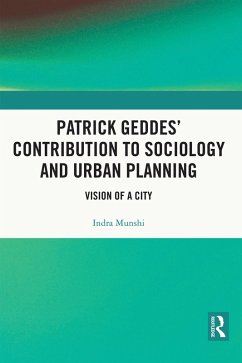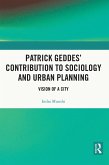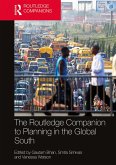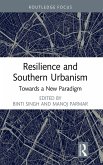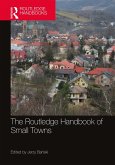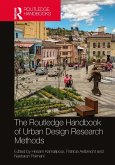Dieser Download kann aus rechtlichen Gründen nur mit Rechnungsadresse in A, B, BG, CY, CZ, D, DK, EW, E, FIN, F, GR, HR, H, IRL, I, LT, L, LR, M, NL, PL, P, R, S, SLO, SK ausgeliefert werden.
Professor Mustansir Dalvi, Sir J. J. College of Architecture, Mumbai.
'This book should be read by anyone interested in the study of Civics, a civics that prioritises the life and working of the city and is seen to be an order beneath which urban planning, architecture and all economic, legal and administrative matters operate. Munshi has put together scholarly and critical insights from a range of Geddes literature that enables both the Geddesian and non-Geddesian to understand his particular version of a biopolitical city. The socio-ecological foundations of the Indian city that Geddes first began to nurture a hundred years ago are outlined whilst underscoring the lessons for every city in our current ecologically vulnerable world.'
Dr Dorian Wiszniewski, Senior Lecturer, Edinburgh School of Architecture and Landscape Architecture, Edinburgh College of Art, University of Edinburgh.
'This is a comprehensive introduction to the amazingly perceptive and far-sighted work of Patrick Geddes, the pioneer sociologist, urban planner, ecologist and civic activist from Edinburgh who made Bombay his home. Capturing Geddes work and insights which have urgent relevance for today's dystopian urbanism and environmentally destructive development pathways, Prof. Munshi offers a biography that is much more - drawing lessons for contemporary ecological crisis, providing a rigorous critique of neoliberal solutions, and serving as a resource for education, participatory urban planning, and resistance to unsustainable development.'
Professor D. Parthasarathy, Humanities and Social Sciences, IIT, Bombay.

